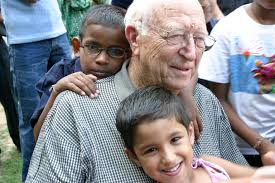Aging
and Relationships
healthy and happy over 50, 60,
. . . and beyond
Aging and Relationships
 Relationships are part of healthy aging success
Relationships are part of healthy aging successAging and relationships appear to go hand in hand when it comes to how healthy and happy we are as we move beyond 50.
What is the evidence for that assertion? And, perhaps more important, if that is indeed true, what is likely to stand between you and strengthening that part of your life?
First, the evidence of how important relationships are to healthy, happy aging.
Harvard University Studies
In
an effort to figure out what it takes to live a long, happy life, the
Study of Adult Development at the Harvard Medical School has used the
findings of three longitudinal studies ( that is, studies that follow
the same individuals over time, in this case over the course of their
lives starting around age 18 in 1939. )
They were looking at whole lives
and not aging and relationships as such. That just came out in the
analysis.
The information that they collected points to some
specific behaviors that the participants who were the happiest most
healthy over 50 and on into their 80's had in common. Whether the same
factors will apply to your life, my life, or that of any other
individual or not is, of course not for sure, but their findings offer
some logical guidelines.
The findings and conclusions are very helpful in terms of what, but provide very little help when it comes to considering how to get there, especially if you don't match up with the demographics of the sample used for the study.
With that caveat in mind, read on to learn what they found.
Neither genetics nor affluence is as important as what you do with what you have
For the participants in these studies, if they made it to 70,
from that point on, irrespective of such issues as gender, social
class, education, and intelligence, what mattered most in being healthy
was specific behaviors, attitudes, and social skills.
The list of physical behaviors reported by those participants
with better health from 50 on contains few, if any, surprises except
perhaps for its brevity.
It is:
-- Not Smoking
-- Using little alcohol
-- Exercising regularly
-- Maintaining normal weight.
And that was it! (At least from their studies.) More recent information suggests that you also need need to be smart in dealing with STD risk, that is risk of contracting sexually transmitted diseases.
There were only two other significant factors

Long term health and happiness were aging and relationships, that is, relationships both with other people and with ones self:
-- maintaining strong social relationships (e.g. stable marriage,) and
-- good adjustment or mature coping styles, which the authors described as skill at "making lemonade out of lemons".
Social relationships and personal coping styles are life-long learning and growing endeavors with near limitless possibilities

Those two factors, while perhaps quite adequate for the purposes of the statistical analyses and reports of the study, look like they could use some "fleshing out" and generalizing to make them more useful for our purposes here. That is much of what the other parts of this website are about.
Perhaps it should come as no surprise that a correlation was found between healthy, happy aging and relationships that were lasting.
So many things go into having good relationships, both what we bring to them and what we receive from them.
The question I want to find answers to is how do you optimize your ability to maintain, build, or repair your relationships going forward.
Return from Aging and Relationships to Home Page.
Copyright @ 2008 - 2018 Better-Relationships-Over-50.com